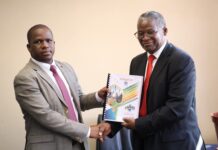A Liswati student enrolled at the Botswana International University of Science and Technology (BIUST) is seeking urgent intervention after government allegedly failed to honour a scholarship loan agreement.
This resulted in her being turned back from the institution and having her academic results withheld.
Sinolwazi Khumalo, who is pursuing a Bachelor of Science in Pure and Applied Mathematics, filed an urgent application before Judge Bonginkosi Magagula, asking the court to compel the ministry of labour and social security to pay her tuition fees and related expenses.
Her legal representative, Hlobani Masondo of Maseko Tsambokhulu Attorneys, argued that Khumalo faced irreparable harm if the ministry did not meet its financial obligations, as she would be unable to register for the upcoming 2025/2026 academic year, which begins this month.
According to the court application, Khumalo was granted a scholarship loan by government in 2024 to pursue her four-year degree.
However, to her surprise, she discovered in the second semester of her first academic year that no payment had been made to the university.
The institution, she said, informed her that, Eswatini government refused to pay because she was not listed in their scholarship database.
As a result, Khumalo was removed from the university’s system and sent back to Eswatini to resolve the issue.
She submitted that it was for that reason that she turned to the courts to secure her place at the university and ensure continuity of her education.
In her affidavit, Khumalo described the ministry’s sudden refusal to honour the scholarship loan as not only prejudicial, but also a violation of her constitutional right to education.
“I have no idea why my scholarship loan agreement with the respondents has been put on hold or even cancelled,” she said.
She informed the court that in June, 2024, she applied for and was granted a government scholarship loan for the 2024/2025 academic year. Following receipt of her admission letter and loan award, she travelled to Botswana and enrolled at BIUST, where she was offered both academic instruction and university accommodation on the strength of her sponsorship. Khumalo believed all was in order until the second semester, when she was informed by university officials that the ministry of labour and social security had rejected requests for payment, claiming she was not in the scholarship database.
Despite multiple follow-ups, including emails and telephone communications, the matter was not resolved.
“I initially thought this was a clerical error and that the matter would be fixed once the respondents were shown my award letter. Instead, I was told to return to Eswatini and solve the issue before I could be readmitted,” she said.
She argued that the scholarship award constituted a valid and enforceable agreement between her and government.
By reneging on its obligations without consultation or due process, she argued, the ministry had acted unlawfully.
Khumalo further submitted that she had performed well academically and met all the requirements for scholarship renewal.
“I respectfully submit that I was granted the scholarship award by the first respondent, who has now, by all accounts, proceeded to take it back without any consultation whatsoever.
Even if there were grounds to terminate the award, I should have been given a chance to be heard.”
She is also seeking a court order directing the ministry to continue paying her tuition and related expenses for the remainder of her four-year programme, on condition that she passes all her courses each academic year.








